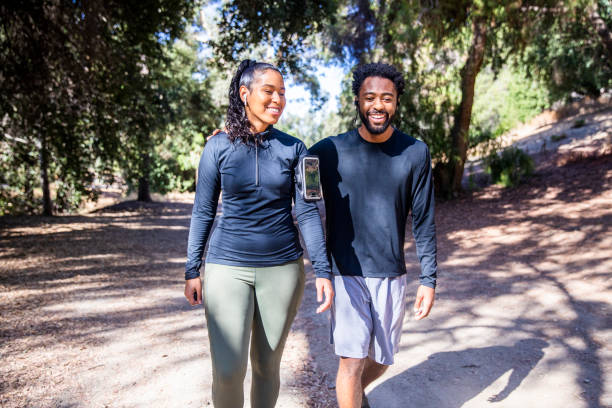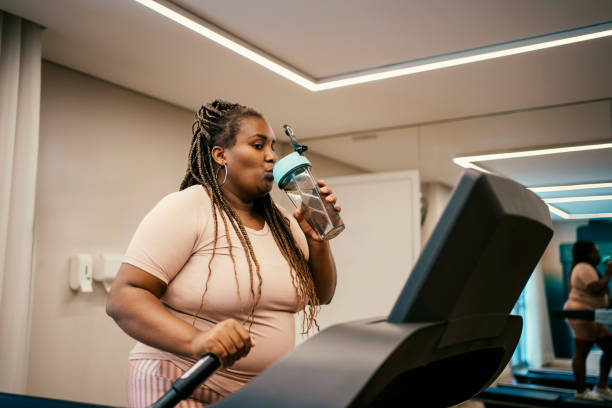(BlackFitness101.com) Aging is a natural process that every human being experiences, yet it remains one of the most discussed and researched topics in the world of fitness and health. As we age, our bodies undergo a myriad of changes at the cellular and molecular levels. These changes can manifest as wrinkles, decreased muscle mass, and reduced bone density, among other signs. However, the process of aging can be slowed down significantly through various lifestyle choices and interventions. In this comprehensive guide, we’ll delve into 11 scientifically-backed strategies that can help slow down the aging process, enhancing both your longevity and quality of life.
1. Regular Physical Exercise
Engaging in regular physical activity is one of the most effective ways to slow down aging. Exercise helps maintain cardiovascular health, enhances muscle strength, improves flexibility, and boosts mental well-being. It stimulates the production of endorphins, the body’s natural mood lifters, and increases the efficiency of the cardiovascular system, reducing the risk of chronic diseases.
Types of Exercise:
- Aerobic Exercise: Activities like walking, running, cycling, and swimming improve heart health and increase lung capacity.
- Strength Training: Lifting weights or using resistance bands helps maintain muscle mass and bone density.
- Flexibility Exercises: Yoga and stretching enhance flexibility, balance, and coordination, reducing the risk of falls and injuries.
2. Balanced Diet
A well-balanced diet rich in nutrients is crucial for maintaining youthful vitality. Nutrients such as antioxidants, vitamins, and minerals play a significant role in combating oxidative stress and inflammation, both of which accelerate the aging process.
Key Dietary Components:
- Antioxidants: Found in berries, nuts, and leafy greens, antioxidants neutralize free radicals that damage cells.
- Healthy Fats: Omega-3 fatty acids, found in fish, flaxseeds, and walnuts, support brain health and reduce inflammation.
- Lean Proteins: Protein sources like chicken, tofu, and legumes help preserve muscle mass and repair tissues.
- Hydration: Adequate water intake keeps skin hydrated and helps flush out toxins.
3. Adequate Sleep
Sleep is essential for cellular repair and regeneration. During deep sleep, the body releases growth hormones that aid in tissue repair and muscle growth. Chronic sleep deprivation can lead to increased stress levels, impaired cognitive function, and accelerated aging.
Tips for Better Sleep:
- Establish a Routine: Go to bed and wake up at the same time every day.
- Create a Sleep-friendly Environment: Keep your bedroom dark, quiet, and cool.
- Limit Screen Time: Reduce exposure to blue light from screens at least an hour before bed.
4. Stress Management
Chronic stress has been linked to numerous health problems, including cardiovascular disease, obesity, diabetes, and accelerated aging. Stress triggers the release of cortisol, a hormone that can lead to inflammation and cellular damage.
Effective Stress-Reduction Techniques:
- Mindfulness Meditation: Practicing mindfulness helps reduce stress and improve emotional regulation.
- Physical Activity: Exercise is a powerful stress reliever.
- Hobbies and Social Connections: Engaging in activities you enjoy and maintaining social relationships can provide emotional support and reduce stress.
5. Sun Protection
Ultraviolet (UV) radiation from the sun is one of the primary causes of premature skin aging. UV rays can cause damage to the skin’s DNA, leading to wrinkles, age spots, and an increased risk of skin cancer.
Sun Protection Strategies:
- Use Sunscreen: Apply broad-spectrum sunscreen with at least SPF 30 daily.
- Wear Protective Clothing: Hats, sunglasses, and long-sleeved clothing can shield your skin from the sun.
- Seek Shade: Avoid direct sun exposure during peak hours (10 AM to 4 PM).
6. Stay Mentally Active
Keeping your brain engaged and stimulated is crucial for maintaining cognitive function as you age. Mental exercises can help prevent memory loss and reduce the risk of neurodegenerative diseases like Alzheimer’s.
Ways to Stay Mentally Active:
- Learning New Skills: Take up a new hobby, learn a new language, or play a musical instrument.
- Puzzles and Games: Engage in activities that challenge your brain, such as crossword puzzles, Sudoku, and strategy games.
- Social Interaction: Maintaining social connections and engaging in conversations can also keep your mind sharp.
7. Maintain a Healthy Weight
Excess body weight, particularly around the abdomen, is associated with a higher risk of chronic diseases such as diabetes, heart disease, and certain cancers. Maintaining a healthy weight through a balanced diet and regular exercise can enhance longevity and improve overall health.
Strategies for Weight Management:
- Balanced Diet: Focus on portion control and nutrient-dense foods.
- Regular Exercise: Incorporate a mix of aerobic, strength, and flexibility exercises.
- Monitor Progress: Keep track of your weight and adjust your lifestyle as needed.
8. Avoid Smoking and Limit Alcohol
Smoking and excessive alcohol consumption are two major factors that accelerate aging. Smoking damages the skin, lungs, and overall health, while excessive alcohol intake can lead to liver damage, dehydration, and nutrient deficiencies.
Healthy Habits:
- Quit Smoking: Seek support from healthcare professionals or support groups to quit smoking.
- Moderate Alcohol Intake: Limit alcohol consumption to moderate levels (up to one drink per day for women and up to two drinks per day for men).
9. Hormone Balance
Hormonal changes are a natural part of aging, particularly for women undergoing menopause and men experiencing andropause. Maintaining hormonal balance can alleviate some of the symptoms associated with aging, such as decreased energy levels, mood swings, and weight gain.
Ways to Support Hormonal Health:
- Healthy Diet: Include foods that support hormone production, such as healthy fats and lean proteins.
- Regular Exercise: Physical activity can help regulate hormones.
- Consult a Healthcare Provider: For hormone replacement therapy or other treatments if needed.
10. Adequate Hydration
Staying well-hydrated is essential for maintaining skin elasticity, joint lubrication, and overall cellular function. Dehydration can lead to dry skin, fatigue, and impaired bodily functions.
Hydration Tips:
- Drink Water Regularly: Aim for at least 8 glasses of water a day.
- Eat Hydrating Foods: Include fruits and vegetables with high water content, such as cucumbers, oranges, and watermelon.
- Limit Dehydrating Beverages: Reduce intake of caffeine and alcohol, which can dehydrate the body.
11. Regular Health Check-ups
Preventive healthcare is crucial for early detection and management of age-related diseases. Regular check-ups with your healthcare provider can help monitor your health status and address any issues before they become serious.
Components of Preventive Care:
- Screenings and Tests: Regular screenings for blood pressure, cholesterol, diabetes, and cancer.
- Vaccinations: Staying up-to-date with vaccinations to prevent diseases.
- Health Monitoring: Keeping track of any changes in your health and discussing them with your doctor.
Understanding the Aging Process
Aging is a complex process influenced by a combination of genetic, environmental, and lifestyle factors. Here’s a deeper look into the science of aging:
Cellular Senescence:
- Cells have a limited number of times they can divide, known as the Hayflick limit. Once they reach this limit, they enter a state called senescence, where they no longer divide but remain metabolically active. Senescent cells can accumulate over time and contribute to age-related diseases.
Telomere Shortening:
- Telomeres are protective caps at the ends of chromosomes that shorten with each cell division. When telomeres become too short, cells can no longer divide and become senescent or die. Telomere shortening is a key factor in the aging process.
Oxidative Stress:
- Free radicals are unstable molecules that can damage cells, proteins, and DNA. Antioxidants neutralize free radicals, but an imbalance between free radicals and antioxidants leads to oxidative stress, accelerating aging.
Inflammation:
- Chronic inflammation, often referred to as “inflammaging,” is associated with many age-related diseases. It results from an overactive immune response and can damage tissues and organs over time.
Slowing down the aging process requires a holistic approach that encompasses various aspects of lifestyle and health. By incorporating regular exercise, a balanced diet, adequate sleep, stress management, sun protection, mental stimulation, weight management, avoiding harmful habits, maintaining hormone balance, staying hydrated, and getting regular health check-ups, you can significantly enhance your longevity and quality of life. Embracing these strategies not only helps you look and feel younger but also promotes overall well-being, enabling you to lead a vibrant and fulfilling life as you age gracefully.
Staff Writer; Janet Banks
Questions? Feel free to email me at; JBanks@BlackFitness101.com.













Leave a Reply